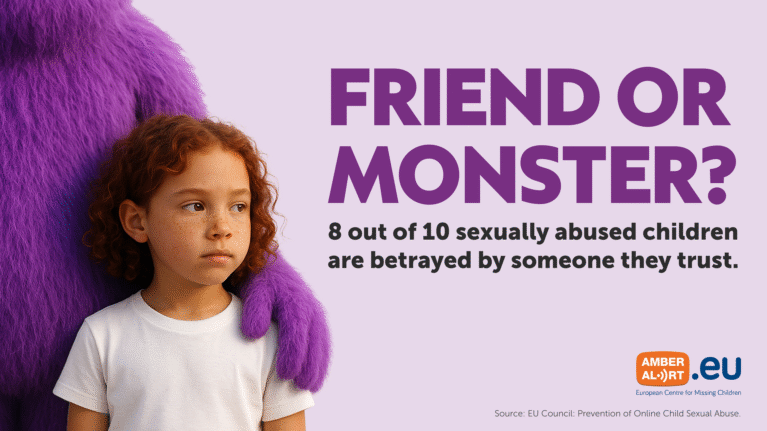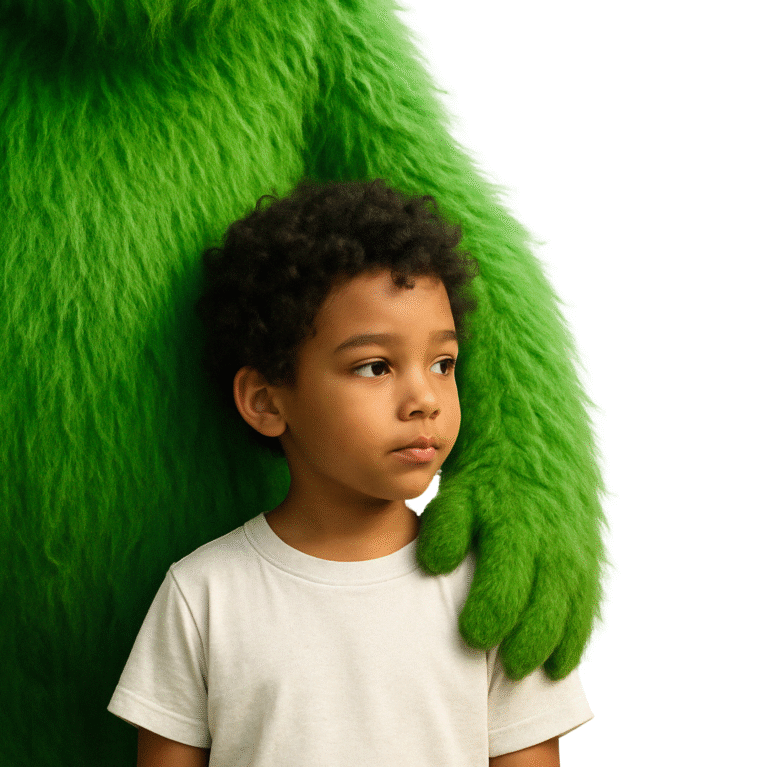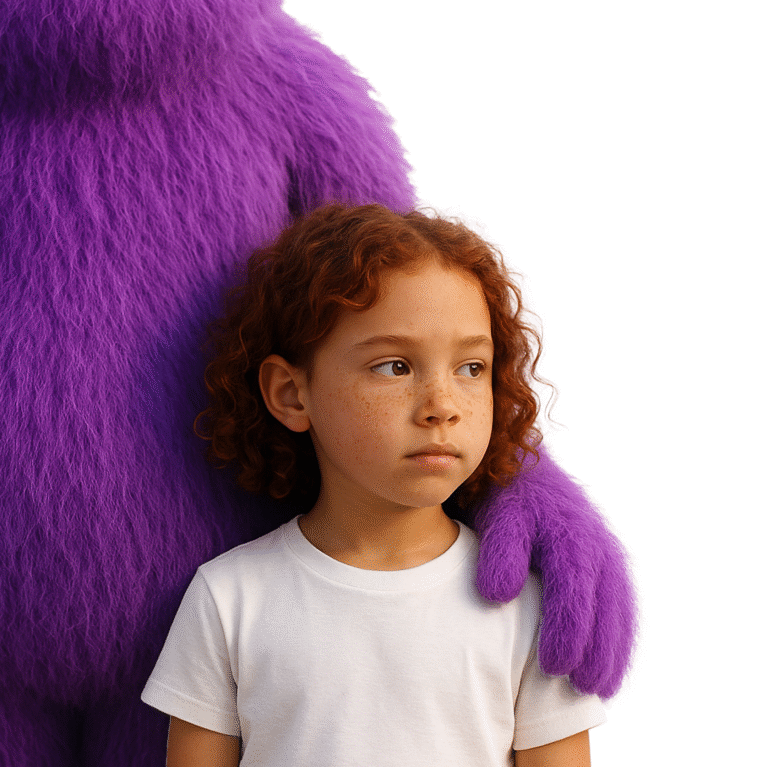Friend or Monster?

Friend or Monster?
Child sexual abuse can tragically lead to children going missing. 8 out of 10 sexually abused children are betrayed by someone they trust. When abuse occurs at home or another trusted environment, children may run away. This can potentially put them at other or even greater risk, such as shoplifting, burglary or theft to sustain their livelihood.

It isn't always stranger danger
On International Missing Children’s Day, 25th of May, we focus on prevention. Children may run away and go missing as a result of abusive situations in their trusted environment. Child sexual abuse remains alarmingly prevalent in Europe, affecting approximately 1 in 5 children. 8 out of 10 of sexually abused children are abused by someone they know and trust, such as family members, close relatives, friends or trusted adults within their community. *
The consequences of sexual abuse within a child’s circle of trust can often lead to children going missing. Home, or other trusted environments can become unbearable, prompting children to run away. Intervening in child sexual abuse, especially when it happens in a trusted environment, can protect children.
Recognising the signs that are possible indicators for child sexual abuse makes intervention possible. Through intervention, further abuse can be called to a halt. It can provide children with a safe environment, away from abuse. This protects them, and can prevent them from running away, going missing and potentially being victimised further.
Spotting the signs
How to recognise the signs that are possible indicators for child sexual abuse, in order to intervene? Abuse might be hidden, but its signs often aren’t. The signs listed here may be an indication that a child has suffered from sexual abuse but are not definite proof. **
Children may become unusually aggressive, withdrawn or clingy. They may also face difficulties sleeping, experience nightmares regularly or start bed-wetting again.
Children may actively avoid specific individuals, places or situations. They may also exhibit unusual or new fears, for example around being touched, being alone with someone or being in particular locations.
Abused children may use explicit language or exhibit knowledge that is inappropriate for their age. Their activities, stories or artwork may reflect sexual themes beyond their developmental age.
Physical indicators can be soreness, redness, swelling or discharge. Other signs can include sexually transmitted diseases, pain and discomfort, especially when using the toilet, and pregnancy.
Children may struggle academically, showing difficulty concentrating, reduced school attendance and declining grades. They may also struggle with social interaction with peers, or seem distracted, have difficulty with memory and zone out often.
Children may display signs of mental illnesses, like bulimia or anorexia, as well as exhibit self-harming behaviour. Habits, such as eating and personal hygiene, may change. Children may change their clothing style, for example to hide their gender.
Children may suggest that something difficult is happening to them, by dropping subtle hints or making vague comments about secrets, adult behaviour or unusual games.
Creating a safe space
Ensuring a child feels safe to speak up about something that may have happened to them is important as a caregiver. Empower children to speak up and take their concerns seriously. Here is how you can help create a safe space. ***
Help children understand the difference between good surprises and harmful secrets.
Children are never responsible to protect themselves from abuse, but teaching them to say ‘no’ can help them stand up for themselves.
Take what your child says seriously and reassure them they have done the right thing by speaking up.
Explain to children that their bodies only belong to them, and that no one may touch, look or take pictures, especially not of their private parts. It is important to clearly describe exceptions, such as a visit to the doctor or the hospital.

What to do when you suspect child sexual abuse
When you have spotted the signs of possible child sexual abuse, and you suspect child sexual abuse taking place, you can get help. You can contact the police and find out here who to contact in your country for advice.
Friend or Monster?
Available in 11 languages
Sources
* Council of Europe: Human Rights Channel; Council of Europe: “The Council of the European Union gives the final green light to the prolongation of a child sexual abuse protection measure”; European Parliament: Combating child sexual abuse; EU Council: Prevention of online child sexual abuse; UNICEF: Action to End Child Sexual Abuse and Exploitation
** National Health Service; Australian National Office for Child Safety, Bravehearts
*** Raising Children AU
